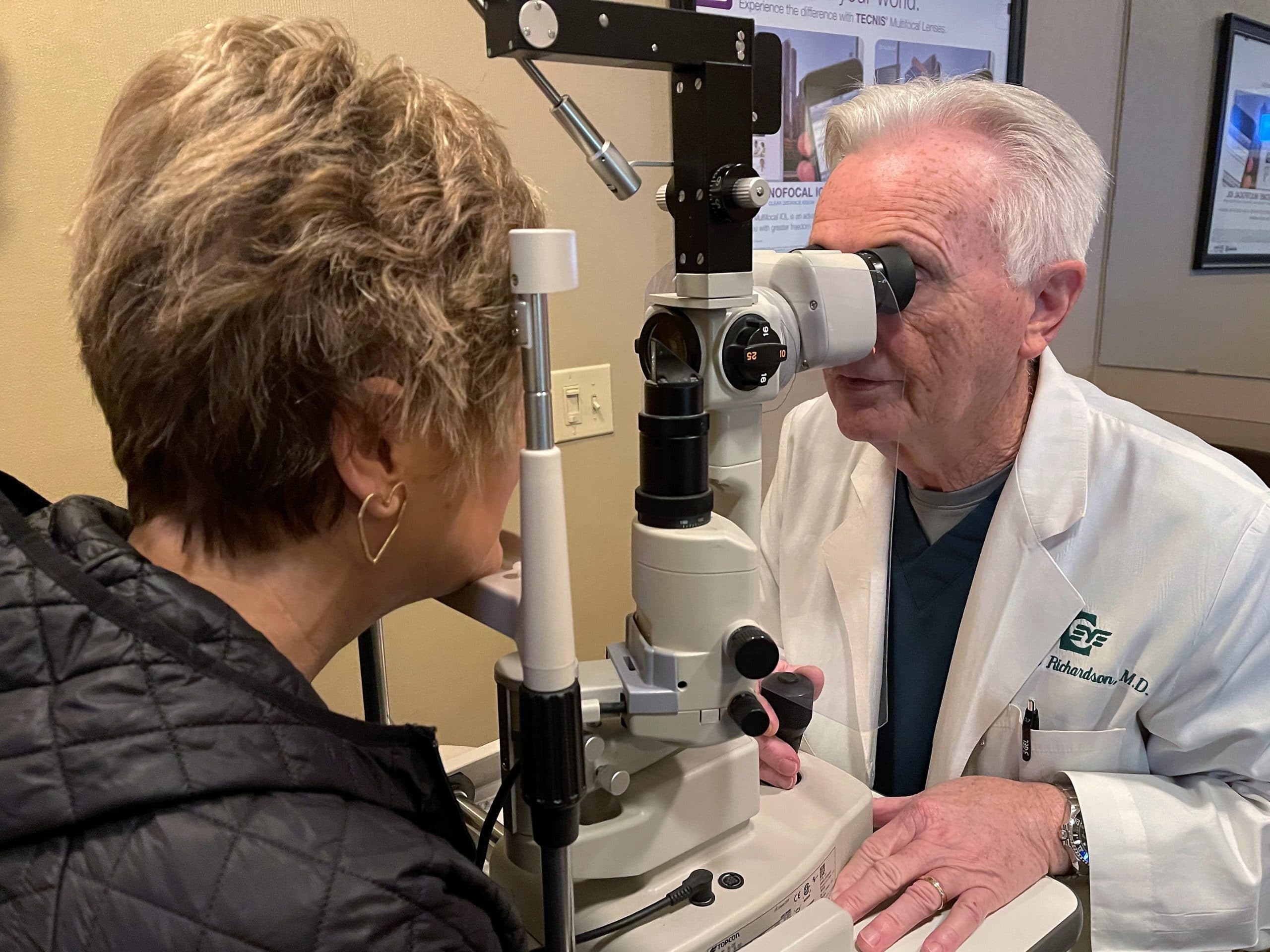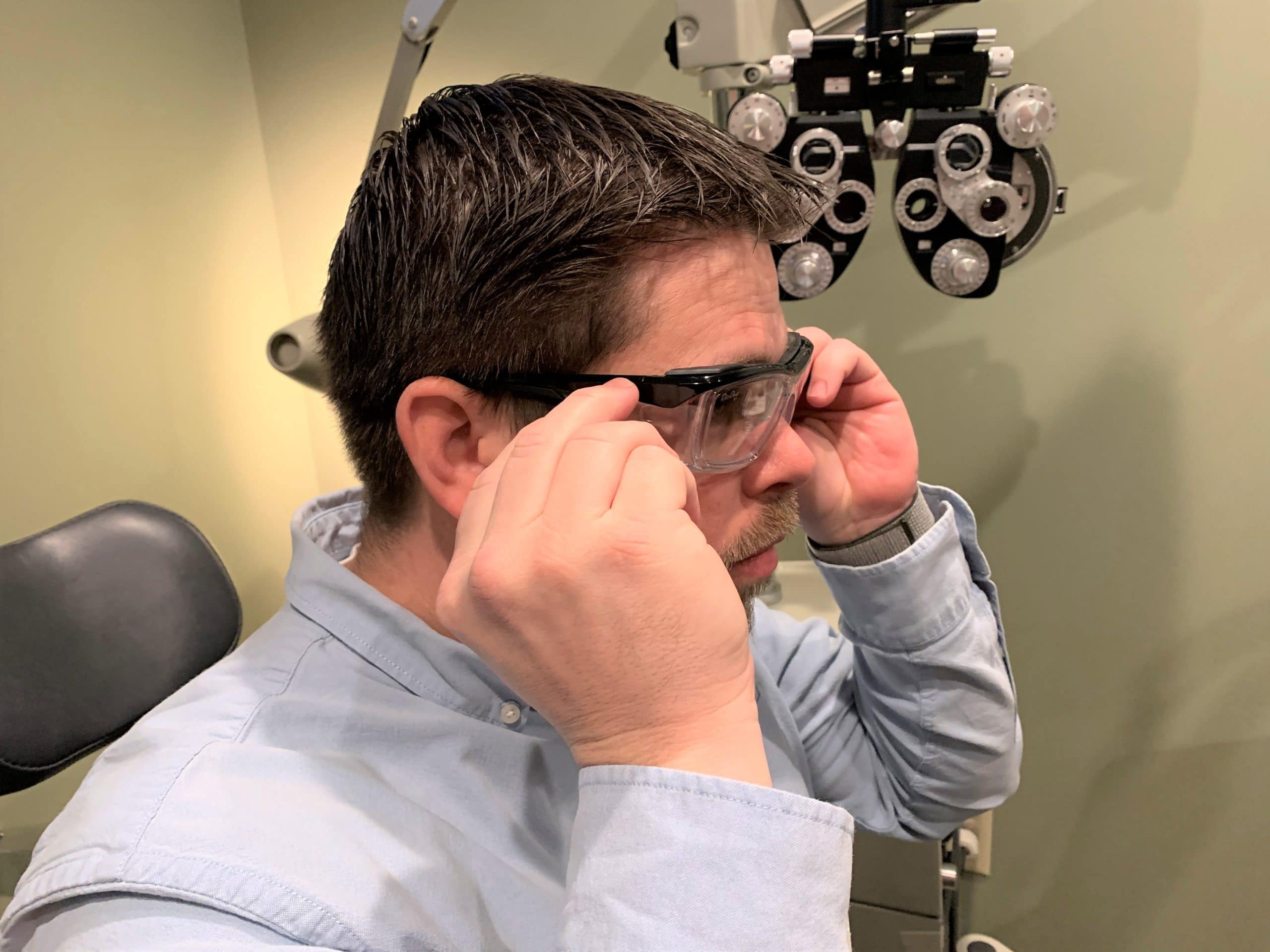Hundreds of thousands of American workers suffer an eye injury on the job each year, costing an estimated $300 million collectively for medical care, lost productivity and worker’s compensation. To shed light on this significant issue, eye care providers like Hattiesburg Eye Clinic annually recognize March as Workplace Eye Wellness Month.
“The vast majority of work-related eye injuries result from foreign bodies lodging in the eye,” says Dr. David Richardson, an eye surgeon with Hattiesburg Eye Clinic. “These foreign bodies could include anything from a piece of metal glancing off a nail head to tiny wood, metal or plastic shavings. And if your work involves it, your eyes might also be at risk from hot sparks or chemical splash.”
It’s not just workers in construction or industrial settings—office workers often deal with eye strain related to long periods of time looking at desktop, tablet or smartphone screens. Although not as damaging to the eyes as industrial hazards, eye strain can contribute to other health problems.
“In and of itself, eye strain doesn’t cause permanent damage. It can, however, lead to eye dryness and significant discomfort,” says Dr. Richardson. “Eye strain can also contribute to headaches or insomnia, which could affect your long-term health.”
There is, however, some good news about work-related eye injuries: 90% of them can be prevented.
“By taking preventive measures, as well as quick action should an injury occur, you can either avoid an eye injury on the job or reduce its damage to your vision and health,” says Dr. Richardson.
By far, the most important thing you can do is to wear protective eye wear in hazardous environments. “At a minimum, workers should wear safety glasses or goggles, and ideally wrap-around glasses or face shields to protect the eyes from flying debris coming from all sides,” says Dr. Richardson.
You should also take special care while handling caustic chemicals to avoid eye splash. But if it should occur, immediately flush your eyes with clear, running water for at least five minutes to remove or dilute the chemical.
And for any eye injury, seek medical attention as soon as possible. “In many cases of foreign body intrusion, we may be able to easily remove the object,” says Dr. Richardson. “If it becomes deeply embedded, though, you may require surgery. Either way, you could risk further eye damage if we don’t treat it.”
Office workers as well can do things to protect against eye strain and dryness. Dr. Richardson says the latter commonly occurs because the eyes aren’t blinking enough during long periods of focus.
To limit this, be sure your eyes are about 25 inches from the screen, and you’re viewing it at a downward angle rather than straight on. Be sure the screen and room lighting are dim enough not to cause glare, and sharpen the contrast on your screen to aid focus. It’s also wise to keep a bottle of artificial tears hand to periodically refresh dry eyes.
Dr. Richardson also advises anyone working on electronic screens to follow the “20-20-20” rule. “Set an alarm to take a break from your screen every 20 minutes. Then, look off at an object 20 feet away for 20 seconds before returning back to your screen.”
Your eyes are a valuable asset to both your work and your life. Be sure you’re taking care of them when you’re on the job.
Visit our webpage for more information on proper vision care. To learn more about how Hattiesburg Eye Clinic can improve your vision health, call 601-268-5910 (or toll-free 800-624-8254) or schedule a consultation with us online.


